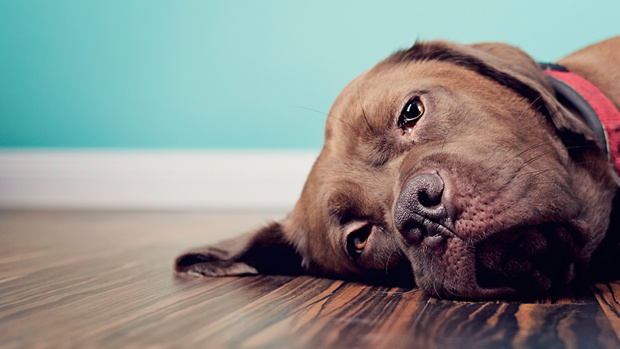Science reveals what really happens to your pets when you leave them alone
- Publish Date
- Monday, 24 April 2017, 8:56AM

Photo / Getty Images
Few dog owners enjoy leaving their pet alone while they head off to work.
But most dog lovers have no idea how their animals cope once they have been left alone.
Now scientists have revealed how dogs spend up to half an hour howling, barking and whining after their owner leaves them alone.
And for some pets, the torment lasts for hours, reports Daily Mail.
Two leading canine behaviour experts have revealed to MailOnline how dogs react to being left alone.
The first few minutes of isolation are the most stressful for a dog, according to the researchers.
Alice Potter, a pet scientist at the RSPCA, told MailOnline: "The separation reaction is displayed soon after the departure of the owner, normally commencing within 30 minutes, and often within the first few minutes."
"The most common behavioural signs of separation-related behaviour are destructive behaviour often targeted at the door the owner leaves through, various types of vocalisations (howling, barking and whining), defecating and urinating.
"Other less frequent signs include excessive salivation, self-mutilation, repetitive behaviour and vomiting."
Dogs are most stressed just after you leave because they have learnt to respond to the signs that you are going, according to Dr Emily Blackwell, an expert in human-animal reactions from the University of Bristol.
She told MailOnline: "The dog will know when its owner is about to leave the house - they learn about the things that there are no routinely does before leaving, for example putting things into a bag, picking up keys and putting on your shoes and coat.
"To some dogs, these 'cues' will be a predictor that something bad is about to happen and will cause them to become anxious.
"For these dogs, within 10 minutes of the owner leaving they will tend to show signs of anxiety which might include pacing about, whining, howling, or scratching at the door."
The next few hours of being left alone depend on the personality of your pup.
Dogs that are predisposed to being anxious can spend hours pacing up and down waiting for their owners to come back.
Dr Blackwell said: "Dogs with separation problems tend not to settle for long periods at all, even when the owner is out for several hours.
"Typically they spend less than a minute resting before getting up and moving again, so their rest is very disturbed and the dogs can often be tired when the owner returns home and only settle down to sleep at that point."
She added that anxious dogs will howl constantly, only taking short breaks to listen out in case their owner has returned.
Miss Potter said it's almost impossible to tell if your dog is likely to be anxious when you leave the house.
"SRB is very much a hidden problem as by its nature it only happens when the owner is absent," she said.
"It is recommended that all owners try to video their dog when they are left alone from time to time, just to make sure they are not showing a 'hidden' sign of distress, such as trembling, pacing about or whining."
Previous research from the University of Bristol has shown that pedigree dogs suffer from separation anxiety more, and Labradors and retrievers are particularly susceptible.
Dr Blackwell added that young dogs are more likely to struggle without their owners.
"As far as dogs with separation problems are concerned that seems to be a peak in prevalence of this disorder at around two years of age, but dogs of any age can suffer," she said.
Miss Potter said there are four simple steps you can follow to help your dog cope with your absence.
"It's important not to punish your dog if he has gone to the toilet or being destructive whilst you are out as likely to make him feel more anxious about being left alone and can damage your relationship," she added.
"Your dog will be more likely to relax when left alone if they've been fed and exercised beforehand."
This article was first published on Daily Mail and is republished here with permission.
Take your Radio, Podcasts and Music with you

